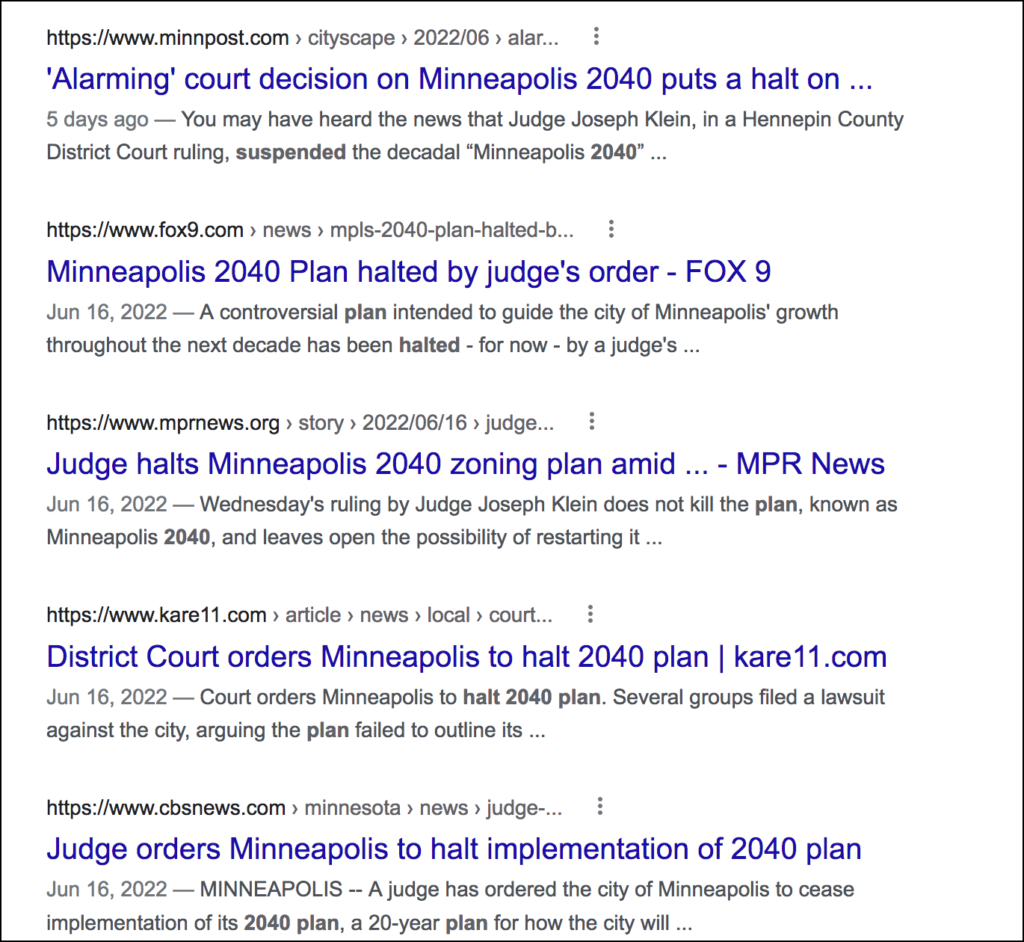A recent lawsuit stopped the implementation of Minneapolis’ 2040 Comprehensive Plan, and it’s not clear yet whether officials will contest the ruling or determine the plan’s environmental impacts – the curve ball that this suit threw. In either case, it’ll take time.

The plan’s intent, in part, was to promote density, therefore walkability and less dependence on cars. But it also emphasized accommodating multi-family rental housing, which works against another priority, said Carol Becker in a letter published in the Star Tribune newspaper June 20, 2022.
Becker, while now a private citizen, served from 2006 to 2021 on the city’s Board of Estimate and Taxation, and has worked as an analyst for governmental bodies including the city. She suggests that the pandemic and the aftermath of the murder of George Floyd have changed major assumptions about the city and what should be important in society. Therefore, a different plan “based on reality” is needed. Home ownership, not rental, is a key wealth-building tool that should be made more, not less, available to people of color.
In addition, Becker writes: “The existing 2040 Plan presumes the city will grow by one-third over the next 20 years, more than three times as much as the Metropolitan Council projects. It is absurd to think that a fully built city would grow that fast, and that bad assumption drives other bad policies. The new plan needs to be based on accommodating 8.5% more people over 20 years, as the Met Council projects.”
Before the lawsuit, Northeast Minneapolis Arts District representatives started working with City Council Members Elliott Payne and Michael Rainville and city staff to mitigate the potential effects of the 2040 Plan on industrial land now in use for the arts. We believe they agree in principle that existing arts buildings should be preserved, but we still fear that existing arts buildings and businesses will be squeezed out by housing being built in too-close proximity.
City staff have stated that land zoned “production mixed use” is targeted for housing development. They were hoping we would easily agree with having a (small) percentage of each new development’s space being designated for maker space. We’ve offered some nuanced ideas that we hope will help everyone.
– by Josh Blanc
